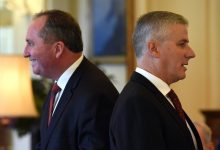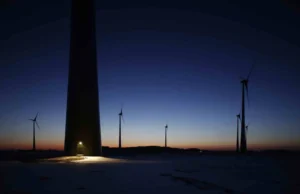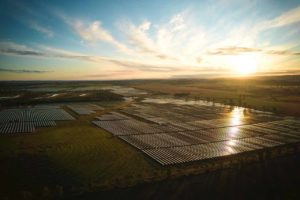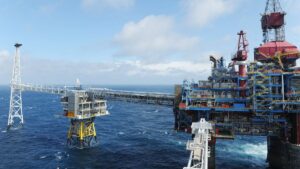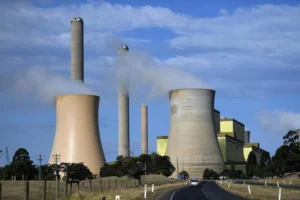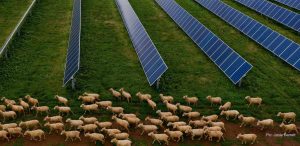Michael McCormack has retained his position as leader of the federal Nationals and as deputy prime minister, after a leadership challenge by former leader Barnaby Joyce fell short, and which appears to have also taken down resources minister Matt Canavan with it.
In the party room ballot, David Littleproud was elected as deputy leader of the Nationals replacing former agriculture minister Bridget McKenzie, who was forced to resign following revelations of the mishandling of sports grants ahead of the 2019 federal election.
While the selection of a new deputy leader was necessitated by McKenzie’s resignation, a complete spill of the Nationals leadership positions was brought on by a leadership challenge by former leader Barnaby Joyce.
Joyce sought to return to the leadership, after being forced to resign from the Nationals leadership in early 2018 following revelations that Joyce had commenced an affair with a member of his staff, and which were subsequently followed by allegations of sexual harassment by Joyce brought forward by a woman from Western Australia.
But the leadership spill has likely overshadowed the potentially a significant outcome, being the exit of resources minister Matt Canavan from the cabinet.
Ahead of the leadership vote, Matt Canavan, who served as the minister for resources and Northern Australia, resigned from his the portfolios ahead of the Nationals leadership spill, citing his intention to support Joyce to replace McCormack as the leader.
At the same time, Canavan also disclosed that he had an undisclosed membership of the North Queensland Cowboys football club, with the club having received a $20 million loan for the construction of a new training facility, under the Northern Australian Infrastructure Facility (NAIF), administer by Canavan as the minister for Northern Australia.
This raised an almost identical conflict of interest issue to the one that forced the resignation of former agriculture minister Bridget McKenzie, who had an undisclosed membership of a gun club which subsequently received grants that McKenzie administered, resulting in a breach of the ministerial standards.
It will almost certainty prevent Canavan from returning to the resources and Northern Australia positions.
Canavan previously served as Barnaby Joyce’s chief of staff and has been a leading advocate within the coalition government for expanding Australia’s coal and gas industries.
On issuing a congratulatory statement to Michael McCormack and David Littleproud, Canavan suggested that the National party was at its most effective when championing fossil fuels.
“The Nationals party is at its best when it acts as an amplifier for the concerns and frustrations of those that live in areas where the light at night comes from the moon or the stars, not fossil fuel powered electricity,” Canavan said.
With the exit of both Canavan and McKenzie from cabinet, prime minister Scott Morrison will now be forced to undertake a more substantial reshuffle of the cabinet, replacing the ministers in both the resources and agriculture portfolio, and may result in a change to other portfolio allocations.
Newly elected deputy Nationals leader David Littleproud will be entitled to a ministerial portfolio as deputy Nationals leader and currently serves as the Minister for Water Resources, Drought, Rural Finance, Natural Disaster and Emergency Management.
Following the leadership vote, McCormack called in the National Party to now unite behind the re-elected leadership team.
“I’d like to think the entire National Party team, and I know they will now unite. We had way too much media speculation, way too much speculation in general, about the leadership role. It’s time to put all that to bed,” McCormack said.
McCormack did not confirm whether Canavan would re-join the cabinet.
“Canavan has resigned his commission as the resources minister, and I wish him all the best,” McCormack said.
The result of the ballot was unknown, but it is understood the result was likely decided by just one or two votes.
In addition to serving as the deputy prime minister, McCormack serves as the Minister for Infrastructure, Transport and Regional Development.
Despite holding the transport portfolio, McCormack hasn’t been an enthusiastic supporter of new vehicle technologies.
At an autonomous vehicle conference in October, McCormack gave a rambling speech, barely touching on the benefits of driverless vehicles and did not acknowledge the role of electric vehicles in the future transport system.
For his part, Joyce had long expressed his dissatisfaction with the direction of the government following his disposal as the Deputy Prime Minister.
In a Twitter post shortly before Christmas, Joyce said that he was sick of government intervention, particularly in relation to climate change, and suggested that carbon pricing may be futile as a “higher authority” had greater influence.
“I just don’t want the government any more in my life, I am sick of the government being in my life,” Joyce said.
“There’s a higher authority that’s beyond our comprehension – right up there in the sky. And unless we understand that that’s got to be respected, then we’re just fools. We’re going to get nailed.”
In 2017, Joyce sought to ridicule the ACT’s 100 per cent renewable energy target, labelling the target “crazy”.
“That might be a policy setting, but it’s also completely insane. It just doesn’t work,” Joyce said about the ACT’s target.
The ACT subsequently achieved its 100 per cent target in October last year and reached that target by building new wind and solar farms, including the Sapphire wind farm located in Joyce’s own New England electorate.

